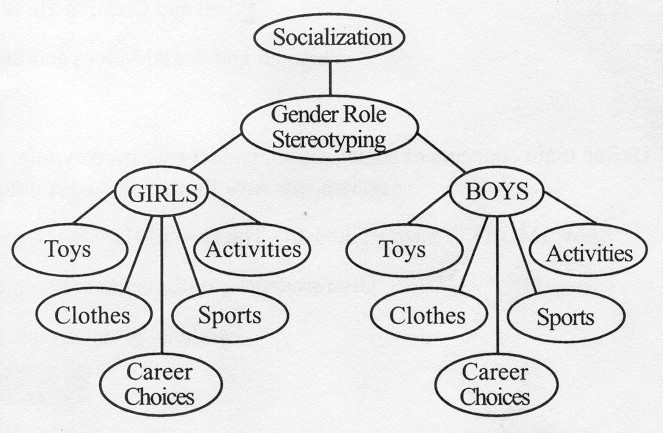Elaborate the process of Socialization. Also comment on major theories of the process of Socialization. Socialization: – Definition Socialization has Traditionally been the study of the process by which a human organism becomes a social being concerned with the rights and duties of self and others, with ethical and unethical behaviour, and so on. Socialization is the process of social interaction through which people acquire personality and learn the way of life of their society. Socialization is the essential link between the individual and society- a link so vital that neither individual nor society could survive without it. It enables the individual to learn the norms, values, language, skills, beliefs, and other patterns of thought and action that are essential for social living. And it enables the society to reproduce itself socially as well as biologically, thus ensuring its continuity from generation to generation. One of the most important outcomes […]
Social Psychology and Major Social Psychological Theories
Define Social Psychology. Also explain major Social psychological theories. Social Psychology: According to psychologist Gordon Allport, social psychology is a discipline that uses scientific methods “to understand and explain how the thought, feeling and behavior of individuals are influenced by the actual, imagined or implied presence of other human beings” (1985). Social psychology looks at a wide range of social topics, including group behavior, social perception, leadership, nonverbal behavior, conformity, aggression and prejudice. It is important to note that social psychology is not just about looking at social influences. Social perception and social interaction are also vital to understanding social behavior. Major Social Psychological Theories: 1. Psychoanalytic Theory Sigmund Freud (1856-1939) is the founder of psychoanalytic theory. This theory assumes that every person has a given amount of vital psychic or mental energy called libido energy. The libido, the source of this psychic energy and the various channels through which […]
Obstacles to Economic Development in Pakistan
Point out various obstacles to economic development of Pakistan and also narrate the current status of Pakistan’s economy. Obstacles to Economic Development in Pakistan Anything that makes slow the process of economic development is called obstacles to its functioning. The various obstacles to the Economic development 0″ Pakistan may be categorized as economic, social, cultural, administrative and political. Economic Obstacles Inadequacy of natural resources Natural resources are comprised of geographical configuration, soil, climate water resources, minerals etc. No country in the world is self-sufficient in this respect but fair degree of resources is needed for economic growth. In this respect, the position of Pakistan is not so discouraging but the overa’. position of Pakistan ..in this respect is not so rich. There are problems of salinity, water logging, floods, droughts, lack of forests, oil and gas, iror. gypsum, coal, copper, water, etc. Under-developed human resources. The labour force in developing […]
Concept of Stock Market
Discuss the concept of Stock Market with special reference to Pakistan. Definitions A stock exchange is an organized market place in which securities such as bonds and common and preferred stocks are bought and sold. The origins of today’s stock exchanges unusually were informal gatherings of merchants and others who traded securities. The Stock Exchange for Stock Market is the market place of join stock companies, where stock certificates of big business enterprises, debentures, government bonds and bills of exchange are bought and sold. Those who have surplus cash with them and are interested to earn interest or profit without doing business by themselves purchase shares or bonds etc. at the stock exchange. In case they fall in need of money they sell these financial assets at the stock exchange. Role and Performance of Stock Exchange Money invested in stock exchange plays the double role for investment. On one hand, […]
What is inflation?how it can be controlled?
What is inflation? Describe its root causes. Also explain how it can be controlled? Inflation: Inflation means generally rising money prices of goods and services. To understand what inflation is and is not, consider the above definition in detail: Goods and services: This refers not to stocks or bonds of other financial assets, but to the tangible and intangible commodities economic agents produce and sell to one another. These are commodities to be consumed or held for future use; e.g. food, haircuts, shelter, houses, health care, schooling, cars, tractors, machine tools. Money prices: This refers to amounts of money, dollars and cents in the United States, per commodity unit, e.g., per pound of butter, gallon of gasoline, haircut, bus trip, kilowatt hours, or diesel engine. In contrast, imagine the barter prices at which one commodity trades for another; e.g., 3 gallons of a gas for 1 hour of labour, two […]
Industrialism and Modernization
Define modernization. Explain social effects of modernization with relevant examples. Also explain different types of authority. Industrialism and Modernization: Modernization is the process of economic and social change that is brought about by the introduction of the industrial mode of production into a society. The Process of Modernization: Only a few centuries ago, population consisted of a large, number of localized and isolated societies whose members lived on hunting, gathering, horticulture, or agriculture. The industrial revolution introduced an entirely new types of society, one that produced tremendous wealth. But, it also destroyed traditional forms of social organizations and created new ones in their place. This process of change in the early industrial societies of Europe was spread over several generations, and culture and social organizations were able to adapt to these changing conditions, but, in the less developed part of the world, change has come more rapidly and with more […]
